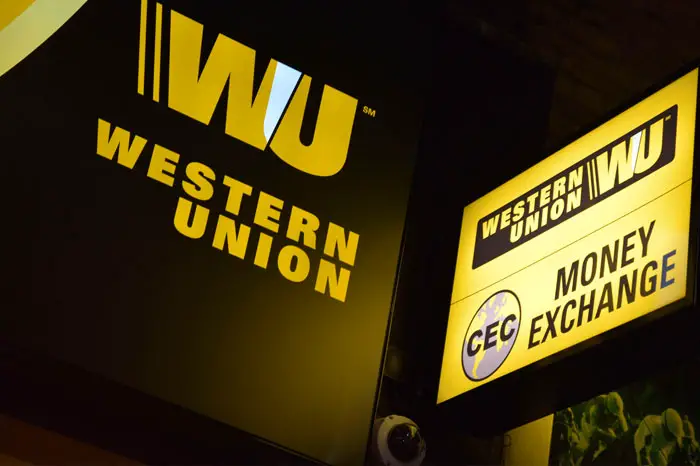 Western Union was founded in Rochester, New York in 1851 as The New York and Mississippi Valley Printing Telegraph Company.
Western Union was founded in Rochester, New York in 1851 as The New York and Mississippi Valley Printing Telegraph Company.
After a series of acquisitions of competing companies by Hiram Sibley & Don Alonzo Watson the company changed its name to Western Union Telegraph Company in 1856 at the insistence of Ezra Cornell, one of the founders of Cornell University, to signify the joining of telegraph lines from coast to coast.
Western Union completed the first transcontinental telegraph line in 1861. In 1865 it formed the Russian American Telegraph in an attempt to link America to Europe, via Alaska, into Siberia, to Moscow.
It introduced the first stock ticker in 1866, and a standardized time service in 1870. The next year, 1871, the company introduced its money transfer service, based on its extensive telegraph network. In 1879, Western Union left the telephone business, having lost a patent lawsuit. As the telephone replaced the telegraph, money transfer would become its primary business.
When the Dow Jones Transportation Average stock market index for the NYSE was created in 1884, Western Union was one of the original eleven companies tracked.
In 1914 Western Union offered the first charge card for consumers; in 1923 it introduced teletypewriters to join its branches. Singing telegrams followed in 1933, intercity fax in 1935, and commercial intercity microwave communications in 1943. In 1958 it began offering Telex to customers. In 1964, Western Union initiated a transcontinental microwave beam to replace land lines.
Western Union became the first American telecommunications corporation to maintain its own fleet of geosynchronous communication satellites, starting in 1974. The fleet of satellites, called Westar, carried communications within the Western Union company for telegram and mailgram message data to Western Union bureaus nationwide. It also handled traffic for its Telex and TWX (Telex II) services. The Westar satellites’ transponders were also leased by other companies for relaying video, voice, data, and facsimile(fax) transmissions.
Due to declining profits and mounting debts, Western Union slowly began to divest itself of telecommunications-based assets starting in the early 1980s. Due to deregulation at the time, Western Union began sending money outside the country, re-inventing itself as “The fastest way to send money worldwideSM” and expanding its agent locations internationally.
In 1986, Western Union and GTE became owners of Airfone.
Western Union was bought by First Financial Management Corporation in 1994, which a year later merged with First Data Corporation. On January 26, 2006, First Data Corporation announced plans to spin Western Union off as an independent, publicly traded company.
Western Union’s focus will remain money transfers. The next day, Western Union announced that it would cease offering telegram transmission and delivery, the product most associated with the company throughout its history. This was, however, not the original Western Union telegram service, but a new service of First Data under the Western Union banner; the original telegram service was discontinued after Western Union Corp.’s bankruptcy.
The spinoff was completed in December and Western Union is now an independent, publicly traded company.

